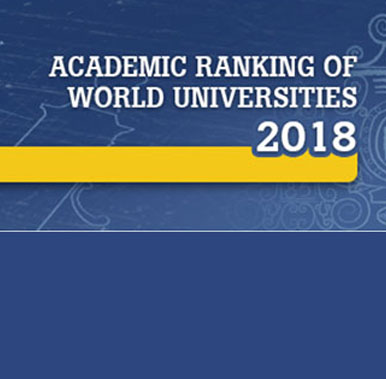The Technion continues to lead Israel’s academia
Technion climbs to 77th place in the list of the world’s best academic institutions
The Technion and Hebrew University (95th place) are Israel’s two representatives in the top 100 of the 2018 Shanghai Ranking
The Technion jumped to 77th place in the Shanghai Academic Ranking of World Universities (ARWU) – the best ranking for an Israeli university this year. The Shanghai list is the world’s leading ranking of institutions of higher education. This year’s top 100 also included the Hebrew University, in 95th place.
Since 2012, the Technion has been consistently included in the ARWU’s top 100 and has now returned to the 77th place, where it was positioned in 2015.
Technion President Professor Peretz Lavie said that “the Technion’s presence in the top 100 leading universities worldwide over the past 7 consecutive years is the fruit of the hard and dedicated work of the Technion management, faculty members, and employees. We carefully select our faculty members with excellence being the single criterion. To tighten the Technion’s position as a world-leading science-technology research university, we also act on the global front – a strategy which has brought about the creation of the Jacobs Technion-Cornell Institute (JCTI) in New York and the Guangdong – Technion-Israel Institute of Technology (GTIIT) in China.
Irrespective of the international ranking, we continuously appraise and improve ourselves, but the high Shanghai ranking provides an exciting international stamp of recognition of the Technion’s excellence.”
This year, for the second time, the Shanghai ranking also included a disciplinary ranking – ranking by research subject. In this ranking as well, published on July 17, the Technion starred in several categories. The Technion ranked first place among Israeli universities in several fields: Space Engineering (22nd place in the world), Automation and Control (30) and Transportation Science and Engineering (group range 51-75).
The Shanghai ranking, which has been published since 2003, evaluates institutions around the world using objective criteria, including the number of Nobel Prize laureates and winners of other prestigious prizes, the number of scientific publications in the leading journals Nature and Science and other performance indicators relative to the size of the university. The comprehensive Chinese research covers 1200 universities, of which 500 are selected as leading universities.


